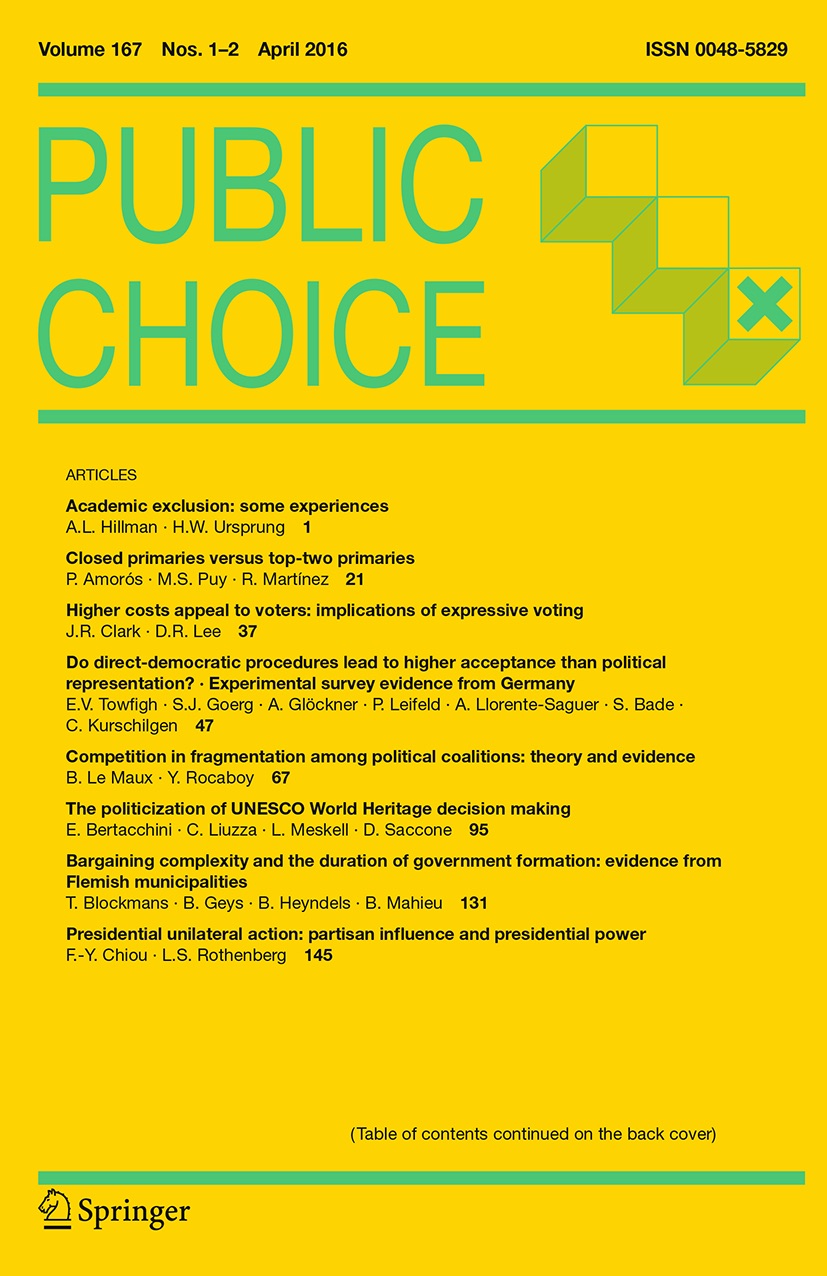Public Choice, vol. 167 (2016), issue 1-2, pp. 47-65
gemeinsam mit Sebastian Goerg, Andreas Glöckner, Philip Leifeld, Aniol Llorente-Saguer, Sophie Bade, Carlos Kurschilgen
Downloads
Dieser Artikel ist kostenlos verfügbar („open access„)
- über diese DOI: 10.1007/s11127-016-0330-y
- via SpringerLink
- und direkt hier
Abstract
Are direct-democratic decisions more acceptable to voters than decisions arrived at through representative procedures? We conduct an experimental online vignette study with a German sample to investigate how voters’ acceptance of a political decision depends on the process through which it is reached. For a set of different issues, we investigate how acceptance varies depending on whether the decision is the result of a direct-democratic institution, a party in a representative democracy, or an expert committee. Our results show that for important issues, direct democracy generates greater acceptance; this finding holds particularly for those voters who do not agree with a collectively chosen outcome. However, if the topic is of limited importance to the voters, acceptance does not differ between the mechanisms. Our results imply that a combination of representative democracy and direct democracy, conditional on the distribution of issue importance among the electorate, may be optimal with regard to acceptance of political decisions.
Rekationen
- „Bayern 2“ (Bavarian Public Broadcasting, Channel 2) Radio Feature (1. April 2014, 18.05 Uhr), im Wissenschaftsprogramm „IQ — Wissenschaft und Forschung“ über „Direkte Demokratie — Was macht der Volksentscheid mit dem Volk?“
- detektor.fm Radio Feature (15. August 2013): Forschungsquartett — Ist direkte Demokratie der Schlüssel zum Wählerglück? (MP3 | PDF)
- DRadio Wissen (3 August 2013) — Volksentscheide kein Königsweg
- Max Planck Society (2 August 2013), Forschung Aktuell
